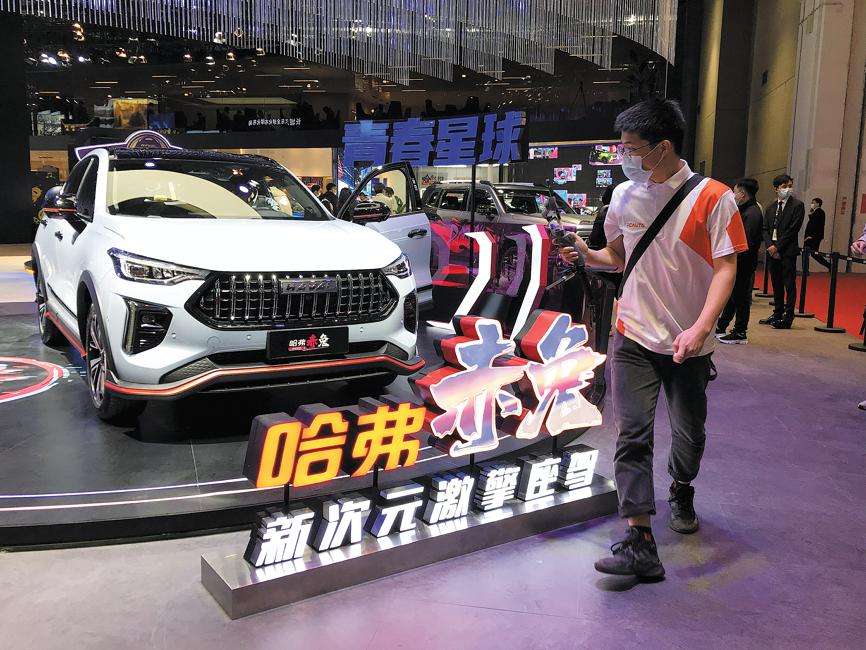Plug-in hybrid vehicle sales see rapid increase in China

Domestic carmakers, in particular private companies, have been investing heavily in the sector, with more models coming in 2023
Sales of plug-in hybrids are gaining momentum in China, and their popularity is expected to rise in the coming years and carmakers vie to offer more models and the subsidies on new energy vehicles are scheduled to stop by the end of the year.
Sales in the first three quarters reached 960,000 units, according to the data from the China Passenger Car Association. Whole year sales are expected to double the 2021 figure of 576,000 units.
The association's statistics show that plug-in hybrids accounted for 22 percent of NEV sales in the first nine months. The figure for such sales stood at 25 percent in September.
Plug-in hybrids are defined as new energy vehicles, which also include electric vehicles and fuel cell vehicles. They are entitled to subsidies from both the central government and local authorities.
Like electric vehicles, they can be charged and drive on an electric mode, usually up to around 100 kilometers. But they also have engines that can work alone or with electric motors, so they have a longer range and better power than electric cars and gasoline vehicles.
The presence of batteries and electric motors helps cut gasoline consumption compared with conventional internal combustion vehicles, which make plug-in hybrids especially appealing when gasoline prices are rising.
"Such features have made plug-in hybrids the best choice for car buyers now, as charging infrastructure is not yet adequate and the range of battery electric vehicles is still limited, although electric cars are our ultimate goal," said Cui Dongshu, secretary-general of the CPCA.
They were not top choices at the start. From 2018 to 2020, annual sales hovered around just 200,000 units.
Some argued that they were transitional choices and would soon be fully replaced by electric vehicles. International carmakers used to offer plug-in hybrids but most of them, including Volkswagen, have shifted their focus to fully electric vehicles.
But Chinese carmakers, especially private ones, have been investing heavily in plug-in hybrids.
Now almost all major companies ranging from BYD to Great Wall Motors and Geely have launched their models, with more to come in 2023.
BYD's sales have skyrocketed this year, mainly driven by the popularity of its plug-in hybrids.
In September, sales of its plug-in hybrid models including the Song Plus DM-i reached 106,000 units, triple the figure in the same month last year.
In the first three quarters, their sales totaled 593,000 units, up 307 percent year-on-year. They were even 10,000 units more than BYD's pure electric car sales in the same period.
Great Wall Motors, China's largest SUV and pickup truck maker, launched its first plug-in hybrid model with its Lemon DHT technology in September 2021, which was the Coffee 01 under its high-end Wey marque.
The Lemon system is one of three technological pillars for the Hebei province-based carmaker's goal to sell 4 million vehicles a year by 2025, of which 80 percent will be NEVs.
The Coffee 01 SUV hit the European market last week at the Paris auto show, as Great Wall Motors' first model to hit the road in Europe, with a similar price to models from local manufacturers including Audi and Mercedes-Benz.
Great Wall Motors has introduced its Lemon DHT system into its more popular Haval models.
One example is its plug-in hybrid H6 SUV, which hit the market in late September. It also went on sale overseas. The carmaker said it received more than 1,000 orders for the model during a 40-minute launch event in Thailand in October.
Geely, Chery as well as Changan have launched their latest plug-in hybrid models as well to join the race.
Cui said the growing number of choices are expected to boost the share of plug-in hybrids in China's fast-growing NEV market.
As the government subsidies to NEVs are scheduled to stop by the end of this year, the prices of electric cars will rise from 2023, which may see some potential buyers go to plug-in hybrids, which are generally more affordable than electric cars, analysts said.

